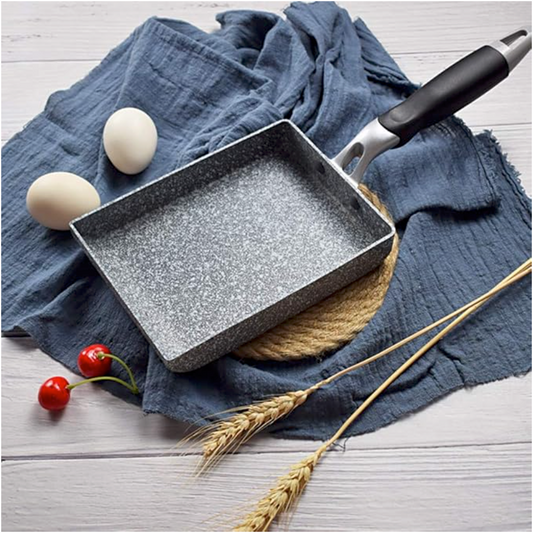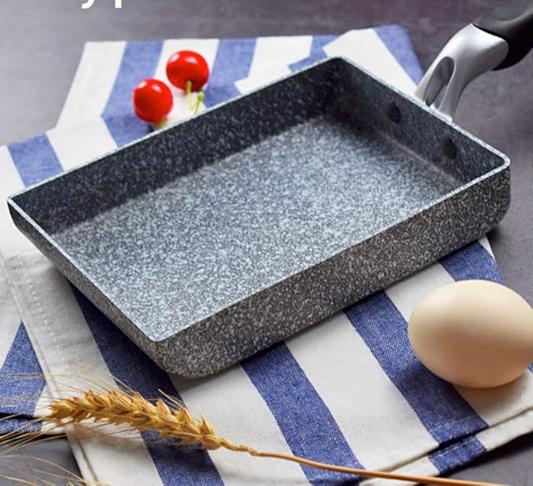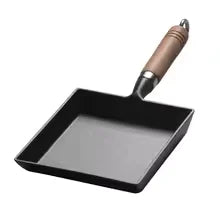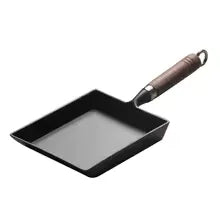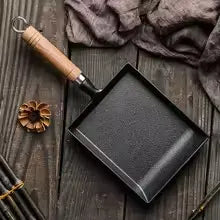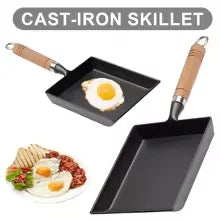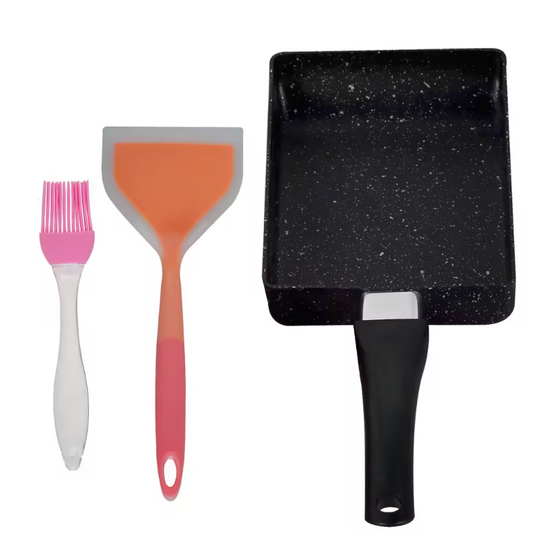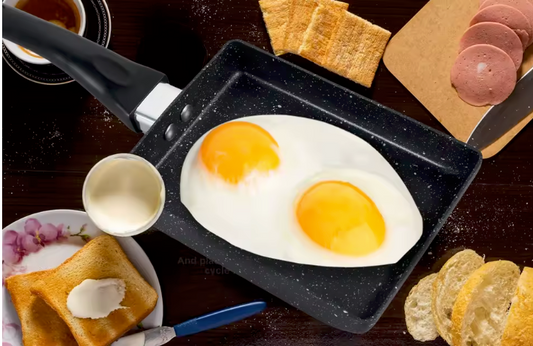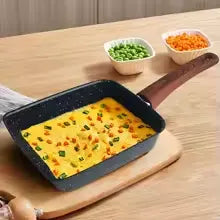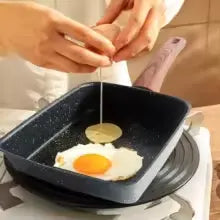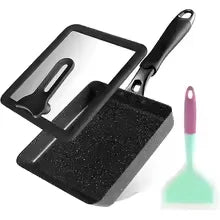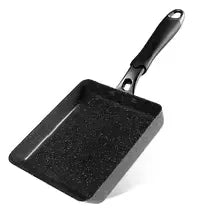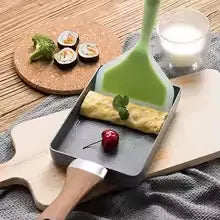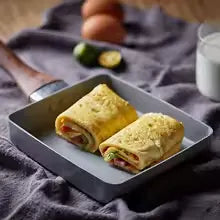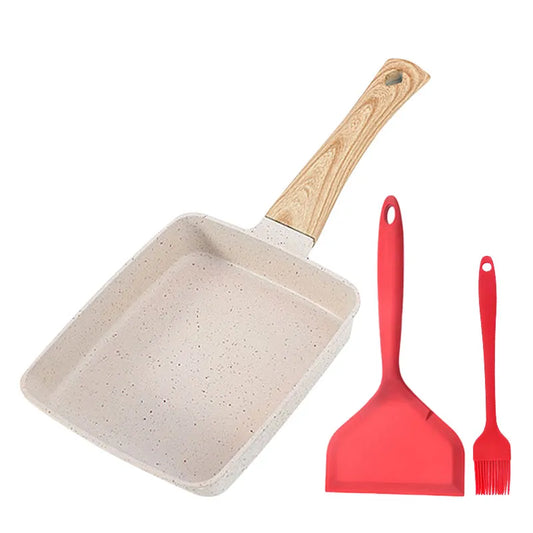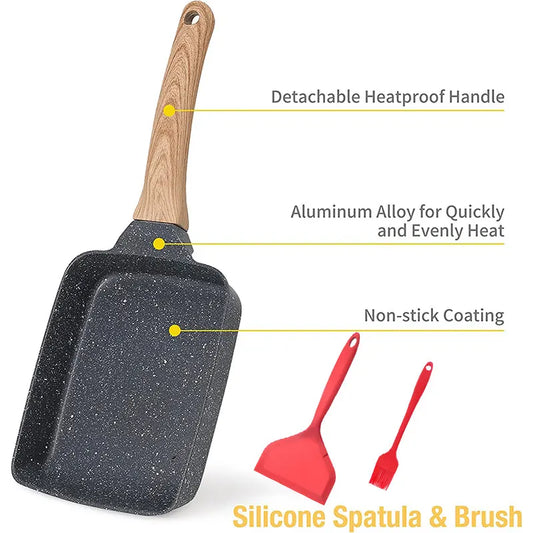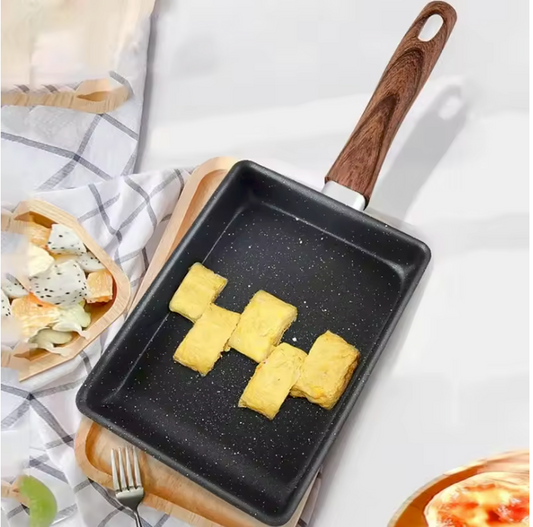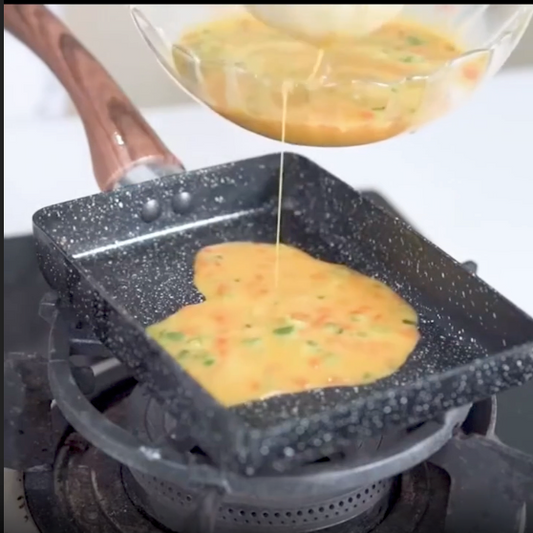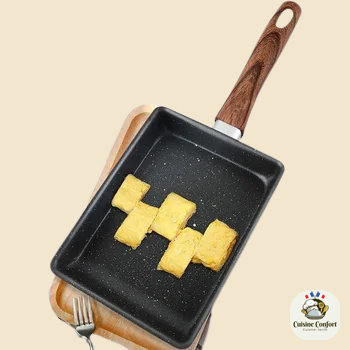Japanese rectangular stove
The Japanese rectangular pan has a suitable shape and a non-stick coating which places it in line with other pans , thus providing even cooking to easily make your tamagoyaki omelets.
-
Rectangular Japanese medical stone stove
Regular price 24,99€Regular priceUnit price / per -
Japanese rectangular cast iron Tamagoyaki pan
Regular price 34,99€Regular priceUnit price / per -
Antiarina Japanese rectangular cast iron pan
Regular price 24,99€Regular priceUnit price / per -
Antiarina Japanese Rectangular Omelette Pan
Regular price 44,99€Regular priceUnit price / per -
Japanese rectangular cast iron pan
Regular price 19,99€Regular priceUnit price / per -
Japanese Rectangular Non-Stick Omelette Pan
Regular price 19,99€Regular priceUnit price / per -
Japanese Rectangular Non-Stick Omelette Pan
Regular price 14,99€Regular priceUnit price / per -
Japanese rectangular stove
Regular price 29,99€Sale price 29,99€Unit price / per -
Japanese non-stick rectangular omelet pan
Regular price 14,99€Regular priceUnit price / per -
Japanese omelet pan
Regular price 49,99€Regular priceUnit price / per
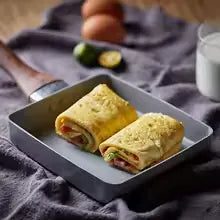
Collection: Japanese rectangular stove
How to use a Japanese rectangular pan?
The Japanese rectangular pan is an ideal kitchen utensil for preparing a tamagoyaki omelet . Thanks to its non-stick coating , it is easy to clean and prevents the preparation from sticking. To use it, preheat the pan over medium heat, pour a thin layer of beaten eggs, let it cook slightly, then fold the omelet over itself. Repeat the operation, adding a new layer of egg each time until you obtain a thick roll. Its rectangular shape ensures even cooking and makes rolling easier, allowing you to quickly create tasty and well-structured omelets, typical of Japanese cuisine .
What is a Japanese rectangular pan?
The rectangular frying pan (also called a rectangular frying pan or makiyaki nabe ) is a typical Japanese cooking utensil , used to make the iconic tamagoyaki omelet . Unlike a round frying pan , this rectangular or square shape makes it easy to roll the omelet and ensures even cooking . It is also known as a Japanese omelet pan , which is particularly useful for preparing delicious recipes based on eggs , fish or vegetables.
How to make a Japanese omelet (tamagoyaki)?
Whisk your eggs with a little dashi, soy sauce, and sugar to make the base of your omelet . This step is quick: just a few minutes are enough to obtain a smooth mixture.
Step by step cooking
- Heat your rectangular Japanese pan over medium heat (gas, electric or induction cooker ).
- Pour a thin layer of the mixture, let it cook slightly, then roll the omelette on itself.
- Repeat this process several times to stack layers of rolled omelet. This is the basic technique of tamagoyaki .
Final result
You get a rolled omelet with a firm yet fluffy texture , perfect for adding to your sushi , bento dishes or a Japanese-style breakfast . You can even slice it for a traditional Japanese presentation.
Why choose a square or rectangular pan?
- Makes preparation easier : The square or rectangular shape allows you to make your tamagoyaki omelet recipes more easily than with a simple round pan .
- Even cooking : Thanks to its shape, the heat is better distributed, which allows for even cooking and regular layers.
- Non-stick coating : For even more comfort, choose a pan with a special coating (for example, steel , cast iron , aluminum or carbon ) to prevent the omelet or pancake from sticking.
- Elegant design : Models from Japanese craftsmanship often offer an elegant design , a beautiful color and a pleasant grip thanks to an ergonomic handle (sometimes made of wood).
What is the best pan for tamagoyaki?
The ideal Japanese omelet pan depends on several criteria:
- Material : A non-stick pan makes unmolding easier, while a steel or cast iron pan provides exceptional durability .
- Size : Small frying pan models (e.g. 17x13 cm or 19x13 cm ) are ideal for 2 to 3 eggs, while a larger size can be useful for preparing larger volumes.
- Compatibility : Make sure it is compatible with all hobs (gas, electric, induction ) if you change your hob or if you want to use it on different appliances.
- Value for money : There are excellent models made in Japan at low prices , known for their high quality . Don't hesitate to consult customer reviews to confirm your choice.
How to clean a Japanese pan?
One of the major advantages of the non-stick tamagoyaki is that it is easy to clean :
- Use a soft sponge and a little dish soap to remove any remaining omelet residue.
- Dry your pan immediately to preserve its non-stick coating .
- Some models are dishwasher safe, check the manufacturer's recommendations.
- If you opt for a cast iron or carbon model, a simple wipe with a sponge and a light oiling after use is enough to ensure proper maintenance .
Where to buy a Japanese pan?
You can buy your Japanese stove :
- Online : Specialty stores often offer a wide range of products and fast delivery . You can also easily compare prices.
- In physical stores : Some Asian grocery stores or stores dedicated to world cuisine sometimes have a section for Japanese utensils.
Remember to check out the latest arrivals or newly launched series, to take advantage of occasional promotions and recent models.
What are the dimensions of a tamagoyaki pan?
The rectangular pan is available in several sizes :
- Small size (approximately 17x13 cm ): ideal for preparing 2 to 3 eggs.
- Medium size (e.g. 19x13 cm ): perfect for everyday use and for cooking slightly larger portions.
- Large size: allows you to prepare large quantities or multiple layers of omelet in one go.
Additional tips for a perfect rolled omelet
- Make thin layers: Pour the egg mixture in small successive layers.
- Cook over medium heat: Too high a temperature risks burning the base before the omelet has time to cook through.
- Use chopsticks or a spatula to easily roll the omelet.
- Quick preparation : It only takes a few minutes to obtain a delicious and fragrant rolled omelet .
- Vary the recipes: Beyond the tamagoyaki omelet, you can also prepare mini-pancakes, galettes or even nabe (simmered preparations) with a square pan .
The Japanese rectangular pan is the essential tool for preparing a typical Japanese tamagoyaki omelet , adding variety to your bento or enhancing a sushi dish . Thanks to its rectangular or square shape , its non-stick coating and its uniform cooking , it facilitates preparation and maintenance while offering a clean and perfect result. Whether you are looking for a steel , cast iron or aluminum model, you will easily find the pan adapted to your needs, both online and in store . For optimal use, check that it is compatible with all heat sources and remember to consult customer reviews in order to choose the best possible quality .
Good tamagoyaki!

